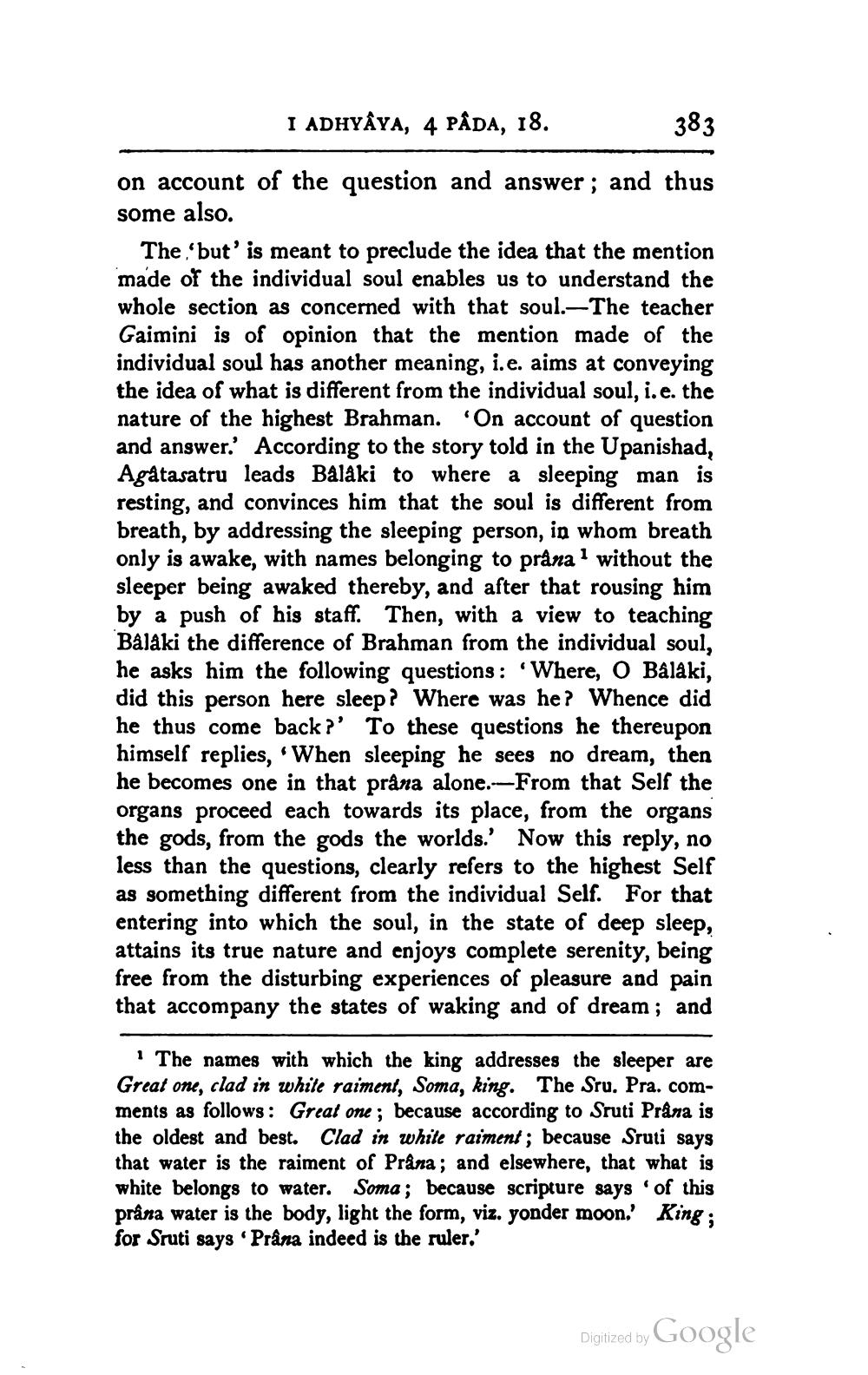________________
I ADHYÂYA, 4 PÂDA, 18.
383
on account of the question and answer; and thus some also.
The 'but' is meant to preclude the idea that the mention made of the individual soul enables us to understand the whole section as concerned with that soul. The teacher Gaimini is of opinion that the mention made of the individual soul has another meaning, i.e. aims at conveying the idea of what is different from the individual soul, i.e. the nature of the highest Brahman. 'On account of question and answer. According to the story told in the Upanishad, Agatasatru leads Balaki to where a sleeping man is resting, and convinces him that the soul is different from breath, by addressing the sleeping person, in whom breath only is awake, with names belonging to prana 1 without the sleeper being awaked thereby, and after that rousing him by a push of his staff. Then, with a view to teaching Bålåki the difference of Brahman from the individual soul, he asks him the following questions : "Where, O Bålåki, did this person here sleep? Where was he? Whence did he thus come back?' To these questions he thereupon himself replies, When sleeping he sees no dream, then he becomes one in that prâna alone.-From that Self the organs proceed each towards its place, from the organs the gods, from the gods the worlds. Now this reply, no less than the questions, clearly refers to the highest Self as something different from the individual Self. For that entering into which the soul, in the state of deep sleep, attains its true nature and enjoys complete serenity, being free from the disturbing experiences of pleasure and pain that accompany the states of waking and of dream; and
1 The names with which the king addresses the sleeper are Great one, clad in white raiment, Soma, king. The Sru. Pra. comments as follows: Great one; because according to Sruti Prana is the oldest and best. Clad in white raiment; because sruli says that water is the raiment of Prana; and elsewhere, that what is white belongs to water. Soma; because scripture says of this pråna water is the body, light the form, viz. yonder moon.' King; for Sruti says Prâna indeed is the ruler.'
Digitized by
Digitized by Google




